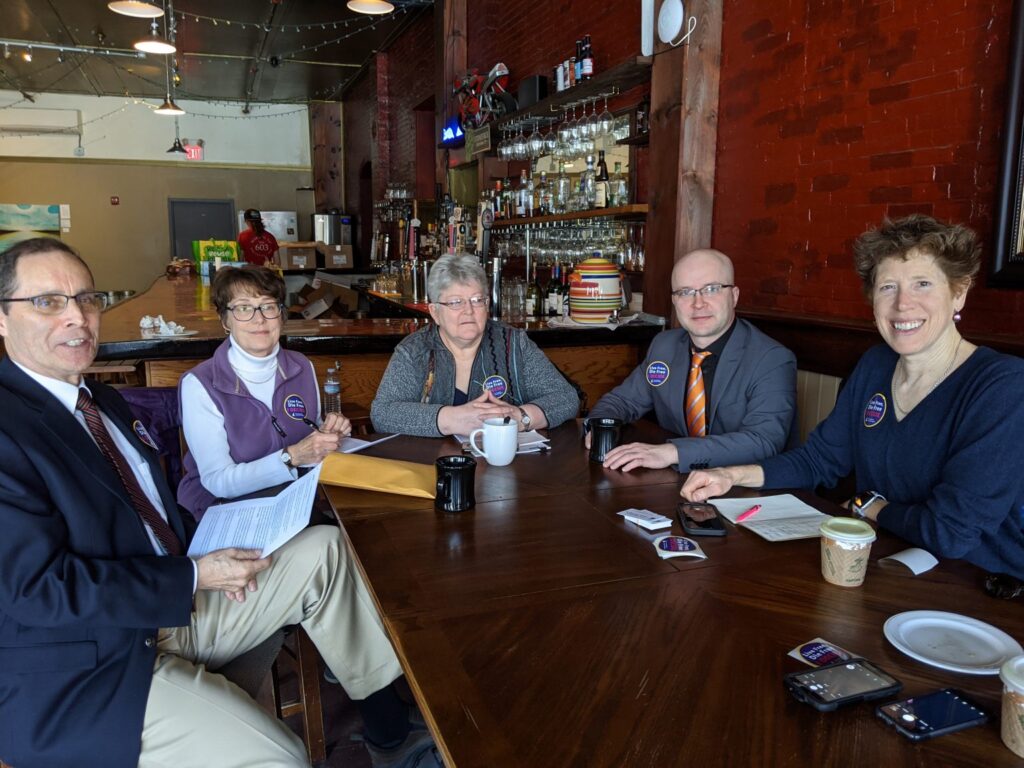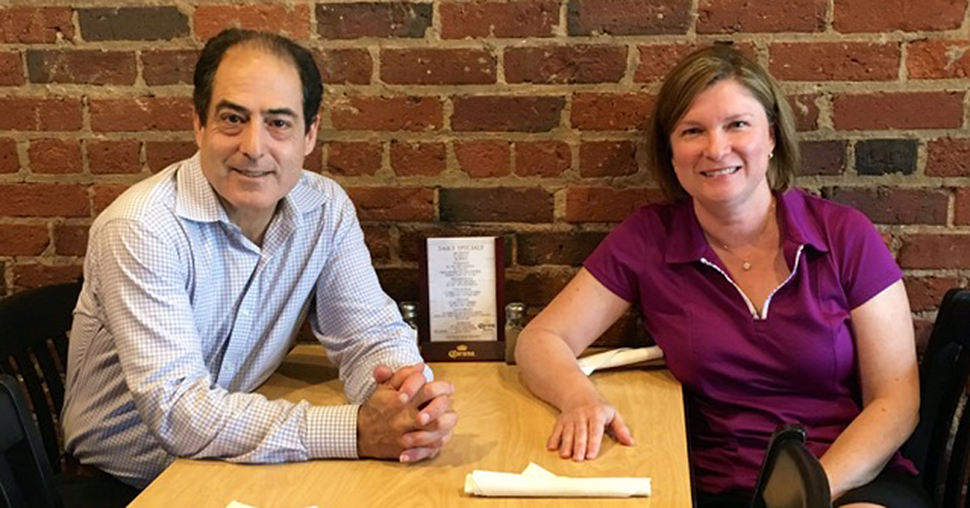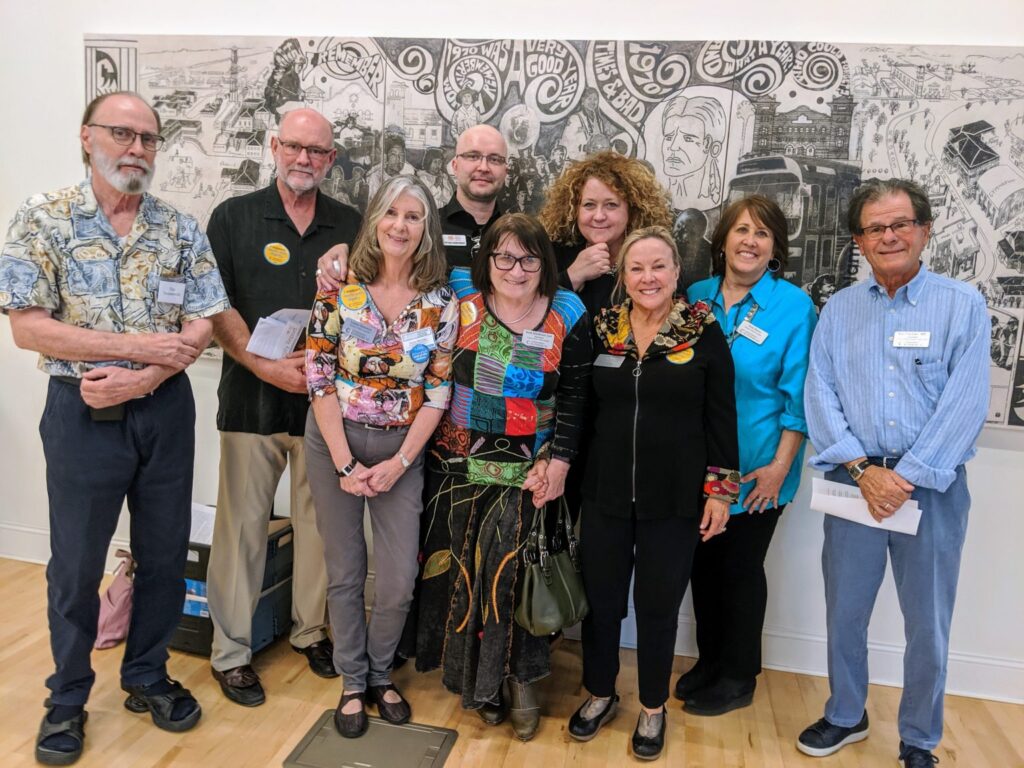Campaigns aren’t won overnight. Successful policy reform efforts require sustained organizing, strategy, and dedication—and the resources to support local leaders for the long haul.
Death with Dignity has a longstanding commitment to supporting advocates at the grassroots, and we are pleased to announce awards from the Dignity50 Grant Fund to help local organizations grow their capacity and strengthen the movement for death with dignity in their states.
Grants to Groups Nationwide
As an element of Death with Dignity’s State Leadership Incubator program, our Dignity50 Grant Fund assists in the development of independent advocacy groups working to promote death with dignity policy reform at the state level.
The recipients represent a diverse mix of states across the U.S. and range from just-formed groups to long-standing coalitions:
- Arizona End-of-Life Options
- Dying Right North Carolina
- Marylanders for End-of-Life Options
- New Hampshire Death with Dignity
- New Mexico End-of-Life Options Coalition
- Ohio End of Life Options
Organizations were selected based on proposals submitted by a representative from each organization outlining how they would use the funds to support their activities.
From Maine Campaign to Mentor
State Leadership Incubator Manager Valerie Lovelace led the successful campaign to pass a death with dignity law in Maine. Now she works with grassroots groups to provide them with mentoring and tools to help their state efforts.
“It’s such an honor to work with other groups trying to pass death with dignity laws in their states,” Val said. “The peace of mind that these laws bring to those who access them remains uncontested. Dying people should be able to access all the options they need when dying, without having to think about moving to another state.”

Kickstarting a Movement in New Hampshire
New Hampshire Death with Dignity launched in September 2019. The group’s steering committee hit the ground running, meeting with advocates and legislators and testifying at a hearing on the proposed New Hampshire Death with Dignity Act at the state Capitol in Concord last month.
Bob McCown, the group’s co-founder and member of its steering committee, is looking forward to kickstarting the grassroots movement in the Granite State with the grant funding.
“We’re planning to formalize our organization and start the outreach and education needed to get the law passed in New Hampshire,” McCown said. This includes developing a strategy to build a coalition with other allied organizations, hosting and participating in public events, and growing a strong volunteer base.
Expanding Efforts in Ohio
Ohio End of Life Options (OELO) founder and executive director Lisa Vigil Schattinger has been active in the death with dignity movement for five years. In 2017, Lisa, a registered nurse, participated in the pilot phase of our State Leadership Incubator program and since then has grown OELO’s public presence, tabling at events across Ohio and participating in local and national conferences pertaining to end-of-life care.
Lisa says OELO will use the funds to refine its website and develop marketing materials “for a more effective presence at community fairs and professional conferences throughout the state.”
Educating Lawmakers in North Carolina
Another State Leadership Incubator participant from 2017, Ed Tiryakian, co-founded Dying Right North Carolina. Over the years, he and death with dignity supporters from across North Carolina have met with legislators on both sides of the aisle to explain why medical aid in dying is not only a humane end-of-life option, but also one that a majority of Americans support.
Ed plans to build on that strong foundation by hosting public seminars to educate legislators, building a strong social media presence to raise awareness among the general public, and persuading lawmakers to green-light a legislative study on end-of-life options in North Carolina that includes aid in dying.
“We hope to educate legislators to the need for medical aid in dying legislation [and] to the positive good it provides people,” Tiryakian said.

Building Momentum in Maryland
Dr. Michael Strauss has been working in coalition with local and national organizations since 2015 to enact death with dignity legislation in Maryland. He, Sally Hunt, and Richard Fredericks co-founded Marylanders for End-of-Life Options (MDELO) in 2017 to organize and focus their grassroots efforts.
Since then, the group has racked up an impressive list of achievements, including endorsements by high-profile organizations, support from prominent members of the Maryland Legislature, and a decision by the Maryland State Medical Society to change its status on death with dignity from opposed to neutral.
Maryland lawmakers are considering an aid-in-dying bill again this session. Strauss and MDELO will use their grant funds to launch a digital advocacy campaign to target constituents of key legislators and encourage them to take action to help pass Senate Bill 701. Additionally, MDELO will expand on its already-successful program to patch through calls from supportive constituents to their legislators, empowering them to contact decision-makers directly.
“We’ve chosen a path where we thought we could have the biggest impact,” Strauss said.
Southwest Standouts
The sunny Southwest has become a bright spot for death with dignity advocacy. Colorado passed an assisted-dying law in 2016; Arizona, New Mexico, and Utah all have considered bills in recent legislative sessions, as has their neighbor to the north, Nevada.
Ambitious Goals in Arizona
Arizona End-of-Life Options formed in late 2019, but the movement for passage of a death with dignity law goes back decades in the Grand Canyon State.
Ron Fischler, MD, who chairs the Arizona End-of-Life Options Steering Committee, thinks recent shifts in the Arizona Legislature mean the political climate is more favorable.
“The mission,” Ron said, “is to pass a law permitting medical aid in dying by 2022.” Given the fledgling organization’s early success in identifying volunteers—nearly 200 to date—they’re well on their way.
The grant funds will enable the group to reach even more supporters through email and social media, host regional events to raise awareness of death with dignity, and launch an effort to educate legislators on the issue.

New Outreach in New Mexico
Since formally incorporating in 2016, the New Mexico End-of-Life Options Coalition has harnessed the energy of more than a dozen partner organizations to work toward passage of a death with dignity bill. The Coalition played a key role in building grassroots and legislative support for assisted dying bills in 2017 and 2019, both of which cleared committees but fell short on the House and Senate floors.
Barak Wolff, a member of the Coalition’s steering committee, says the grant from Death with Dignity will support efforts to “communicate more routinely and robustly with our supporters statewide” through email and an updated website. “It will also help our rural outreach efforts to engage smaller communities about end-of-life issues and identify local champions to help us improve our advocacy efforts to pass medical aid in dying legislation in New Mexico in 2021.”
“Inspiring and Helpful”
Lisa Vigil Schattinger appreciates the opportunity to connect with advocates in other states, as well as to work with a leader of a successful grassroots campaign to pass a law.
“Working under Val’s experienced guidance and meeting others in states working toward this goal has been both inspiring and helpful in learning some of the nuts and bolts of making progress,” Lisa said.
“I’m so happy Death with Dignity National Center was able to fund six Dignity50 grants this year,” Val said. “It’s really our donors who have made this possible. Without the generosity and goodwill of contributors large and small, support like this would just not be possible.”